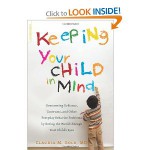
There’s something about the Deep South that inspires the writing of great literature (think William Faulkner, Tennessee Williams, Truman Capote) more than, for example, North Dakota. Likewise, we think of “the grand diagnoses” in psychiatry more than we do, say, about Generalized Anxiety Disorder. Prince of Tides is a 1991 movie capturing the lowland beauty […]
By:
William Van Ornum, Ph.D.

The Individuals with Disabilities Act (IDEA) lists conditions present in a child that can qualify him or her for special services in the educational system in preschool. These are: *Chromosomal Abnormalities (e.g., Down syndrome) *Syndromes (e.g., fetal alcohol syndrome) *Neuromuscular Disorder (e.g., cerebral palsy, spina bifida) *Central nervous system (CNS) abnormality (e.g., caused by bacterial/viral […]
By:
William Van Ornum, Ph.D.
The American Psychological Association has announced, in the January 2012 issue of American Psychologist, “Guidelines for Assessment of and Intervention With Persons of Disabilities.” This document lists twenty-two practice-guidelines for psychologists who work with persons displaying disabilities of various kinds. The task force for this report was chaired by Kurt F. Geisinger of the University […]
By:
William Van Ornum, Ph.D.
Elaine Aron pioneered new ground over a decade ago when she wrote the trade book The Highly Sensitive Person; this was followed up by a workbook, a book on parenting children who are highly sensitive, and even a primer for therapists. Highly Sensitive Persons (HSP), in her view (which incorporates findings from important developmental psychologists […]
By:
William Van Ornum, Ph.D.

Finally Hollywood has discovered a good man with the right stuff to play the part of an incredibly loving father who happens to be a graduate of the Bronx High School of Science, loves baseball, and who has just a enough of Asperger’s syndrome qualities (a mere scent) to bond closely with his nine-year-old, a […]
By:
William Van Ornum, Ph.D.

In the recent yearly “Reports of the Association” issue of the American Psychologist (December 2011), the American Psychological Association announced “Practice Guidelines Regarding Psychologists’ Involvement in Pharmacological Issues.” This report notes several factors that will make psychologists more involved in medication-management issues. One survey noted that the number of Americans using antidepressants increased from 6.7 […]
By:
William Van Ornum, Ph.D.

Ann Carrns, writing in the January 11, 2012, New York Times, notes a new financial tool, one geared for families with individuals who have special needs: “Families with children who have special needs or disabilities face even bigger hurdles than most people when it comes to planning for their financial futures. Merrill Lynch Wealth Management […]
By:
William Van Ornum, Ph.D.
The December 22, 2011, edition of the New York Times brings out another article on the problems and abuses in New York State public groups homes where developmentally disabled persons reside. It is important to note that the focus of the NYT articles has been on “public” rather than private group homes. Many of the […]
By:
William Van Ornum, Ph.D.

Here is a letter I received from Jesse Close: Dear William: Share your story with Bring Change 2 Mind. I was 47 by the time I was properly diagnosed with bipolar disorder. For most of my life, my illness went undiagnosed and untreated. Life is much better now. A proper diagnosis and treatment helped tremendously, […]
By:
William Van Ornum, Ph.D.
The following is based on interviews with Alexandra Styron. I first met Alexandra Styron at a reading of her new book, Reading My Father: A Memoir (Scribner, 2011). She was appearing at the Quogue Public Library on Long Island. It was one of those beautiful midsummer afternoons that remind one so much of Henry James’s […]
By:
Dr. Melissa Wanamaker
Among the millions of Facebook responses generated each day, some are posted by persons who display varying degrees of suicide potential and risk. In an attempt to deal with this constructively, Facebook (according to an article in the December 10, 2001, Boston Globe) will begin a service in which Facebook users can let Facebook know […]
By:
William Van Ornum, Ph.D.

In most cases psychiatric drugs are not valuable commodities on the street: antipsychotics and antidepressants with names such as Thorazine, Haldol, Resperidal, Tofranil, SSRIs, Wellbutrin, Abilify, Lithium, and others generally must build up a therapeutic dosage in the bloodstream to become effective. There is no immediate “rush” or feeling of euphoria. In acute-psychiatric illness, a […]
By:
William Van Ornum, Ph.D.

I came across this memoir (with its compelling title, somewhat reminiscent of the work of Clarice Lispector) upon learning its author, Carol Hebald, had been awarded (six years before) the same fellowship I had been given as an undergraduate. The foreword is by iconoclast Thomas Stephen Szasz, known for his anti-traditional “anti-views” of psychotherapy. In […]
By:
Evander Lomke

What are mental bears? A person who is asked NOT to think aloud about a white bear will more often than not mention this same white bear: at least once a minute. So “white bears” have come to mean all sorts of unwanted thoughts that cause annoyance to even extreme frustration to those who experience […]
By:
William Van Ornum, Ph.D.
It is a great service to the public when prominent people share their struggles with psychological conditions like depression. This often gives others the courage to seek treatment and acknowledge their need for help. Dick Cavett’s biography in Wikipedia notes: “Cavett has openly discussed his bouts with clinical depression, an illness that first affected him […]
By:
William Van Ornum, Ph.D.

Dr. Melissa Wanamaker will soon contribute a substantive blog on the subject of depression and Alexandra Styron, daughter of famed author William Styron. Following is Dr. Wanamaker’s biographical sketch. Melissa C. Wanamaker, Ph.D., L.C.S.W.-R., is a psychoanalytic psychotherapist, licensed in New York State as a social worker. She is in private practice in Manhattan and […]
By:
Dr. Melissa Wanamaker
From the 14th edition of Abnormal Psychology by James N. Butcher, Susan Mineka, and Jill M. Hooley (Boston: Allyn and Bacon): “The concept of mental disorder, as we have seen, suffers from the lack of a truly objective means of what is disordered and what is not. It is also in the financial interests of […]
By:
William Van Ornum, Ph.D.

AMHF attended the 51st Annual Meeting of the New England Psychological Association (NEPA), held October 28-29 at Fairfield University in Fairfield, Connecticut. After a wonderful dinner, hosted by Drs. Robin Crabtree and Susan Franzosa, deans at Fairfield, participants heard child-development expert Dr. James Garbarino speak of “Children and the Dark Side of Human Experience: Confronting […]
By:
William Van Ornum, Ph.D.

On Friday, October 28, 2011, AMHF attended the 17th Annual Meeting of the Northeast Conference for Teachers of Psychology. This is a group of psychologists, who teach in colleges and universities, dedicated to improving their teaching of undergraduates and graduates. Participants of the group come from a wide range of specialties and interests including developmental, […]
By:
William Van Ornum, Ph.D.
AMHF Advisory Board member Dr. James Quick has authored an extensive comment in the recent American Psychologist, the flagship journal of the American Psychological Association. In that journal there has been an extended discussion about the role of psychologists in working with the military as well as questioning as to whether or not psychologists ought […]
By:
William Van Ornum, Ph.D.
The DSM was first issued in 1952, during that liberating period that saw, for example, Kinsey’s reports on sexual behavior. The DSM in its various editions guides treatment decisions throughout North America and other continents. The original DSM listed 106 disorders. This was pretty much carried over to the 1968 revision. However, the DSM III […]
By:
Evander Lomke
The October 9, 2011, New York Times once again brings to our attention the recent suicide of former New York Yankees pitcher Hideki Irabu. Once again, we are reminded of the sadness of Irabu’s death as well as the need for greater research and understanding about suicide from groups such as Suicide Prevention International. The […]
By:
William Van Ornum, Ph.D.

Claudia M. Gold, MD, is a behavioral pediatrician who writes for the Boston Globe. She offers some excellent thoughts on the topic of psychiatric medication and children: “In the last chapter of my new book Keeping Your Child in Mind: Overcoming Defiance, Tantrums, and Other Everyday Behavior Problems by Seeing the World through Your Child’s […]
By:
William Van Ornum, Ph.D.
No matter what position you take, the effects of abortion on the state of mental health is filled with controversy. The controversy comes from all sides, at root with a theological basis, but also secular: sociological and, of course, psychological in origin. The British Journal of Psychiatry published an extensive study on the subject (uniquely, […]
By:
Evander Lomke
A stock market that swings erratically every few years is looking to be the new normal: Many even doubt that a ten-year horizon is a safe one for long-term investors or those planning retirement. Economic worries are real. They can be all-consuming. Yet, often unacknowledged is the role of one’s emotional experience in diluting or […]
By:
William Van Ornum, Ph.D.
Once focus of American Mental Health Foundation this past year has been to increase awareness and research of suicide. We have done this through our support of Suicide Prevention International. Recently ex-major-league pitcher Hideki Irabu was found dead in his home in California. He had apparently committed suicide by hanging himself. What made this even […]
By:
William Van Ornum, Ph.D.
The evolution of the Diagnostic and Statistical Manual (DSM I, II, III, IV, IV-TR) and upcoming DSM V is an interesting one. The first manual was a short volume with a small number of diagnoses. The diagnosis itself was often not as important as the detailed clinical description written about the patient, often written from […]
By:
William Van Ornum, Ph.D.
Counseling Today (a journal of the American Counseling Association in their July 2011 issue reports on a survey released by the National Alliance on Mental Illness (NAMI) and the needs of families who have children experiencing mental illness. The Adolescent Action Center of NAMI did a survey of over 500 respondents. Each of these was […]
By:
William Van Ornum, Ph.D.
Peter Kramer, M.D., writing in the July 9 issue of the New York Times Magazine, responded to a number of recent articles in the media that criticize the efficacy of antidepressant medications. One of the reviews mentioned was an essay in the New York Review of Books, wherein Marsha Angell, former editor of the New […]
By:
William Van Ornum, Ph.D.
Previously we have written about Marsha Linehan, clinical psychologist who developed dialectical behavioral therapy, and who has worked throughout her career with persons who display severe suicidal behaviors or symptoms of what is called borderline personality disorder. On June 23, 2011, the New York Times presented an intriguing story, Expert on Mental Illness Reveals Her […]
By:
William Van Ornum, Ph.D.
« Previous
1
2
3
4
5
Next »





















 Host Companion
Host Companion